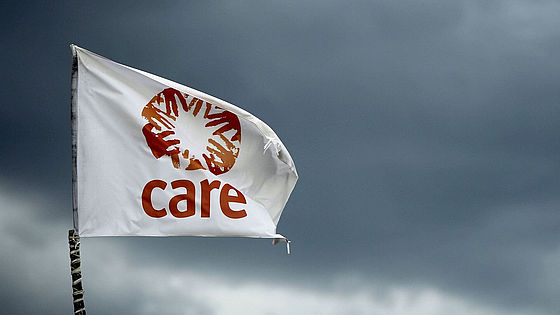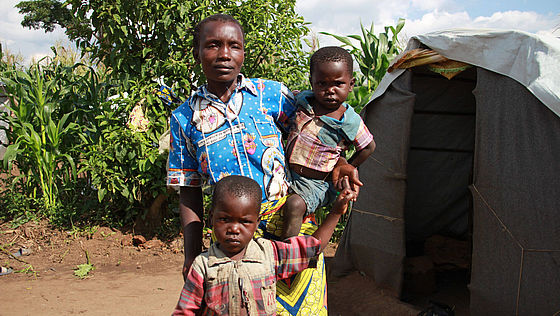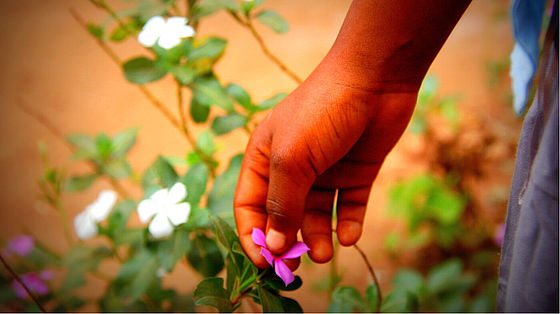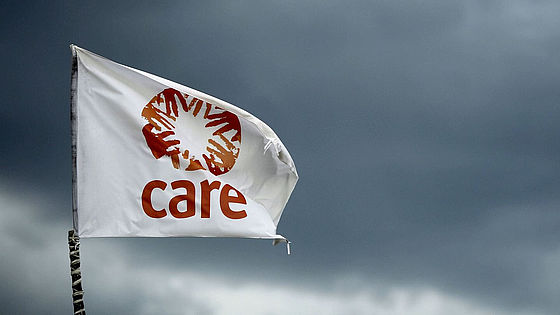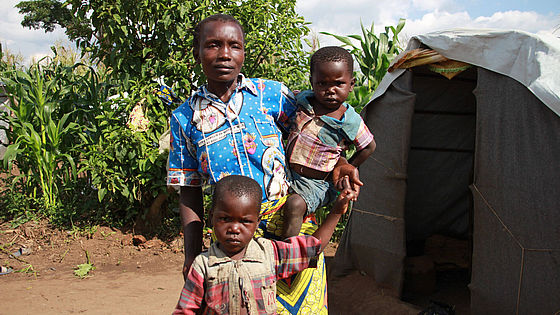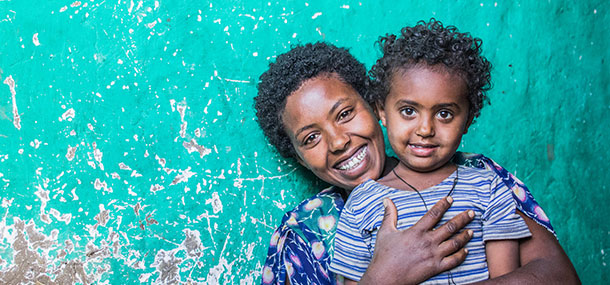In der Demokratischen Republik Kongo verschärft sich die humanitäre Situation. Die jüngsten Gewaltausbrüche beeinträchtigen die Versorgung von Millionen Menschen. Gemeinsam mit Oxfam und dem Danish Refugee Council hat CARE ein Pressestatement zur aktuellen Lage veröffentlicht.
Achtung Redaktionen: Gesprächspartner:innen vor Ort stehen zur Verfügung. Bei Interesse melden Sie sich gerne beim CARE-Medienteam. Aktuelle Fotos zur Situation in der Demokratischen Republik Kongo finden Sie hier und hier. Bei Verwendung geben Sie bitte „CARE/www.care.de“ als Bildquelle an.
Das englische Pressestatement im Original:
Renewed violent clashes involving non-state armed groups have exacerbated the hunger and protection crises in the Democratic Republic of Congo (DRC), leaving 10 million people in urgent need of humanitarian assistance, warned Oxfam, CARE International and the Danish Refugee Council today.
Since the beginning of the year, the ongoing conflicts have killed nearly 1,400 civilians, including women and children. Sexual violence against women and girls is also on the rise, with over 340 cases of sexual violence reported in areas of Kanyaruchinya and Munigi in Niyragongo territory since January 2023 alone.
“Due to the recent violence, hundreds of thousands of farmers across North Kivu, South Kivu and Ituri are unable to start the planting season to secure food and income, as they have been driven out of their lands and homes. Over 26 million people already do not have enough to eat due to years of conflict and displacement. Continued violence is now pushing them to the brink”, said Justine Gomis Tossou, Oxfam Country Director in DRC.
More than 600,000 people have been forced to flee their homes since violence escalated in June 2022. Hundreds of people are arriving every day and being crammed in crowded makeshift camps. In Lushagala IDP camp, the number of families arriving increased from 2,280 to 6,261 in just one week. This is stretching resources such as clean water and sanitation and increasing the risk of outbreak of waterborne diseases such as cholera.
“Over 59,000 children are malnourished and over 5,000 pregnant women require appropriate nutritional care. With food insecurity, overcrowding in the sites, poor hygiene and sanitation conditions, shortage of drinking water, and lack of access to health care, the likelihood of an increase in the cases of cholera in the makeshift camps is high in Nyiragongo. Conflict hampers access to get much-needed aid to the affected”, said Sidibe Kadidia CARE International Country Director in DRC.
The country already suffers the largest internal displacement crisis in Africa due to the ongoing violence. To date, 5.8 million people across Ituri, North Kivu, South Kivu, and Tanganyika provinces - over half of them being women – have been forced to flee their homes. Many have had to move more than once.
Mr Kasereka Mahamba, a father of five children who fled to Lushagala camp explains: “We fled our home in Mushaki to Kirolirwe where we thought we were safe from rebels. We were forced to flee back to Mushaki as the fighting approached our village, then moved again to Saké when soldiers withdrew from the village, before arriving in Goma.”
Insecurity in conflict zones is hampering aid efforts making it harder to reach people most in need. Humanitarian flights are also at risk of being halted, and several main roads from Goma to the west and north, have been blocked. Areas in Walikale, Masisi, Mweso, and Lubero are almost entirely cut off from life-saving humanitarian assistance.
Despite the worsening humanitarian situation, only 10.2 percent of the $2.25 billion UN appeal for DRC this year has been funded to date.
The three aid agencies are calling on donors to urgently meet the current UN appeal for DRC to help save lives now. The government of DRC and the international community must work equally on addressing the root cause of the crisis and protecting human rights.
Medienkontakt



